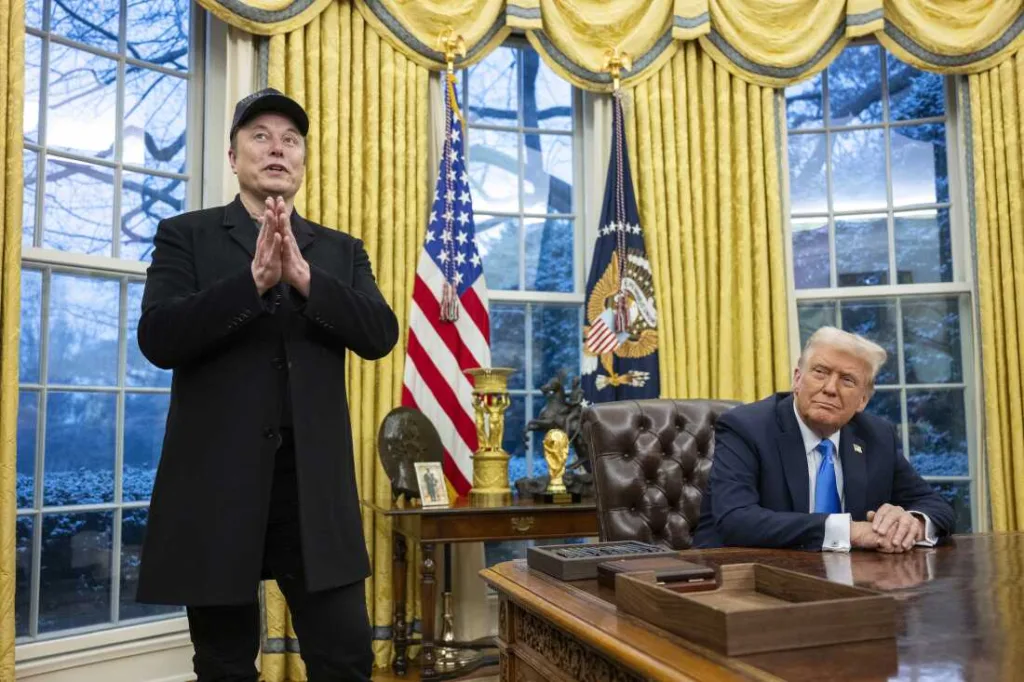Trump Announces Plans to Retain Department of Government Efficiency (DOGE) Under Musk’s Leadership
President Praises DOGE Team’s Tech-Savvy Approach to Government Reform During White House Cabinet Meeting
In a significant move signaling continuity for one of his administration’s key government reform initiatives, President Donald Trump has announced his intention to retain the Department of Government Efficiency, commonly known as DOGE. The announcement highlights the administration’s commitment to technological innovation in government operations and suggests a vote of confidence in the department’s early performance.
Trump Expresses Support for DOGE During Cabinet Meeting
The President made the announcement Thursday during a high-level meeting at the White House with members of his cabinet, including Secretary of State Marco Rubio and other departmental secretaries. Also notably present was tech entrepreneur Elon Musk, who currently heads DOGE while serving as a special government employee.
“Your people are fantastic, hopefully, they’ll stay around for the long haul. We’d like to keep as many as we can,” President Trump remarked directly to Musk during the meeting. “They’re great, smart, sharp, finding things that nobody thought of, and very computer savvy.”
This public endorsement suggests the administration is pleased with DOGE’s initial work in its mission to streamline government operations and cut unnecessary spending.
What is DOGE and Why It Matters
Understanding the Department of Government Efficiency
The Department of Government Efficiency represents one of the Trump administration’s signature initiatives aimed at modernizing federal operations and reducing bureaucratic inefficiencies. Led by Musk, who brings his private sector experience from companies like Tesla, SpaceX, and X (formerly Twitter), DOGE has been tasked with identifying wasteful spending and outdated processes across government departments.
The department operates with a relatively small team of technology and efficiency experts, many recruited from the private sector, who work alongside career government employees to implement modern business practices in federal operations.
Tech-Driven Approach to Government Reform
What sets DOGE apart from previous government efficiency initiatives is its heavy reliance on technological solutions and data analytics to identify waste and inefficiency. By applying principles from the tech industry to government operations, the department aims to achieve significant cost savings while improving service delivery.
According to government efficiency experts, this approach represents a potential paradigm shift in how the federal government approaches operational reform, moving from periodic reviews to continuous improvement powered by data and technology.
Impact on Government Operations and Taxpayers
Early Results and Potential Savings
While specific achievements of DOGE have not been fully detailed publicly, the President’s enthusiasm suggests the department has already identified significant opportunities for improvement. Federal spending analysts estimate that successful government efficiency initiatives could potentially save taxpayers billions of dollars annually if implemented effectively.
The retention of DOGE signals that the administration believes the department’s work remains unfinished and valuable, with potential long-term benefits for both government operations and fiscal responsibility.
Private Sector Partnership Model
The DOGE initiative also highlights the administration’s approach to leveraging private sector expertise to solve public sector challenges. With Musk serving as a special government employee rather than a traditional federal appointee, the model represents an alternative approach to bringing outside talent into government.
This arrangement has drawn both praise for its innovation and criticism regarding potential conflicts of interest from various government watchdog groups.
What Happens Next for DOGE
Expanding Scope and Implementation
With the President’s endorsement, DOGE is likely to continue and potentially expand its activities across federal departments. Observers anticipate the department will move from primarily identifying inefficiencies to implementing specific reform initiatives across the government.
Key areas likely to receive attention include:
- Modernization of legacy IT systems
- Streamlining procurement processes
- Reducing duplicative programs
- Improving digital service delivery to citizens
- Applying artificial intelligence to appropriate government functions
Legislative Considerations
For DOGE to have a lasting impact beyond the current administration, congressional support may eventually be needed for more comprehensive reforms. While many efficiency improvements can be implemented administratively, structural changes would require legislative action.
Policy experts suggest the administration may seek to work with Congress to codify successful DOGE initiatives to ensure their longevity beyond the current term.
Want to stay informed about the evolution of government reform efforts and their impact on taxpayers? Subscribe to our Public Sector Innovation newsletter for expert analysis and updates on initiatives like DOGE. Join policy professionals and concerned citizens who want to track how government is being transformed.



